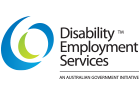Australia is now facing a lack of available staff and workers across most industry sectors. Yet according to disability employment experts, atWork Australia, there are 4.37M people living with disability who are facing challenges with employment depriving small businesses of diverse and qualified talent.
According to the inaugural Job Seeker Wellbeing Index, which examined the wellbeing of Australian jobseekers, people living with disability, are met with extreme social inequalities, with lower employment and higher underemployment. Additionally, employment matters most for these job seekers, and will likely have a greater impact on their wellbeing.
Hiring a person living with disability is not an issue to overcome, but an opportunity to build stronger teams. A diverse workforce, reflective of society, facilitates different methods of communication, collaboration and leadership to balance out working styles and create a fluid and dynamic culture.
Small businesses can play an important role in creating an inclusive workplace and reap significant benefits from hiring people living with disability. Different minds, backgrounds, experiences, genders and ages bring together different thought processes to solve more complex problems.
Businesses also stand to gain. A 2018 study showed that companies that prioritise inclusion achieve on average 28 per cent higher revenue, 30 per cent higher profit margins and double the net income. They also see staff retention go up by 90 per cent, which eliminates ‘revolving door’ recruitment.
Hong Kong Chef is one business that has seen success with inclusive recruitment. A restaurant chain with around 100 employees, the business has employed at least 12 people living with a disability.
Owner Jackson says, “Diversity is good for business. I’m surprised that there are still businesses that are not geared toward inclusive workplaces. We have had nothing but positive experiences working with diverse groups.”
Some common misconceptions around inclusive recruitment and why it’s good for small business includes:
A person living with disability can’t complete the same tasks
Never assume that someone isn’t capable of certain things due to their disability when in fact people can adapt and find new ways to do things. If employers can create a workplace where the person living with disability can freely ask for help and have access to supportive technology, the person will complete their role to the best of their ability.
It doesn’t cost more to hire someone living with a disability
According to research, the cost is exactly the same as employing those without disabilities. Employers may be eligible for funding through the Australian Government’s Employment Assistance Fund (EAF) which may cover such costs as accessibility requirements for eligible persons including equipment and accessing services.
Diversity creates engagement
Inclusive workplaces are likely to be more engaged, motivated and productive, with employees staying with a diverse business for longer. Recruitment strategies that include the employment of people with disability also opens the door to other diverse groups, helping meet HR targets and benefit from the full talent pool.
An inclusive workforce enables better connections with customers
The Australian Network on Disability says a workforce that reflects the diversity of the wider community may also lead to greater customer loyalty and satisfaction across industries. A workforce that reflects your customer base, creates a better connection.
Written by Debbie Brooks and published via Inside Small Business. Read the full article here.



